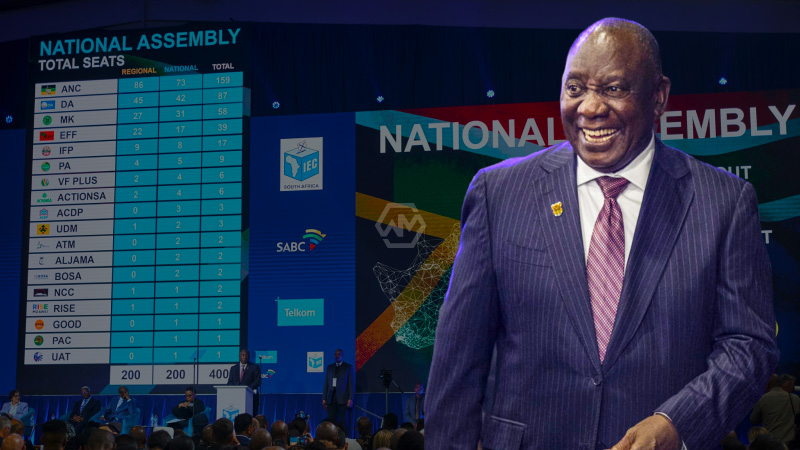- ANC seeks coalition for Ramaphosa’s re-election.
- DA’s pivotal role in forming majority coalition.
- Opposition parties refuse to join unity government.
In South Africa, the upcoming presidential election is shrouded in uncertainty as coalition negotiations intensify. The ANC, having lost its majority, faces challenges in securing support for Cyril Ramaphosa’s second term. Meanwhile, the DA holds the key to forming a majority coalition but negotiations are complex due to historical animosity between the parties.
Coalition dynamics and the future of South Africa’s political system
As South Africa approaches its deadline for coalition agreements and presidential elections, political tensions are palpable. The ANC’s loss of its longstanding majority has forced it into uncharted territory, negotiating with smaller parties like the IFP to secure enough votes for Ramaphosa’s reelection. Meanwhile, the DA holds considerable sway with its 87 seats but faces internal and external pressures in forming an alliance with the ANC, a party it has historically opposed.
Opposition from parties like the EFF and MK further complicates the ANC’s path to a majority coalition. Both parties have staunchly refused to join any unity government, underscoring the challenges of consensus-building in South Africa’s diverse political landscape. This deadlock heightens the stakes as Parliament prepares to convene amidst uncertain alliances and political maneuvering.
The outcome of these negotiations will not only determine Ramaphosa’s political future but also signal a shift in South African politics towards coalition governance. For citizens and observers alike, the stakes are high as the nation navigates this critical juncture in its democratic journey.
As South Africa prepares for a pivotal presidential election amid coalition negotiations, the political future of the nation hangs in the balance. The outcome will not only determine leadership but also set the tone for governance and policy-making in the post-apartheid era.
“In politics, shared governance requires compromise, even among former adversaries.”



